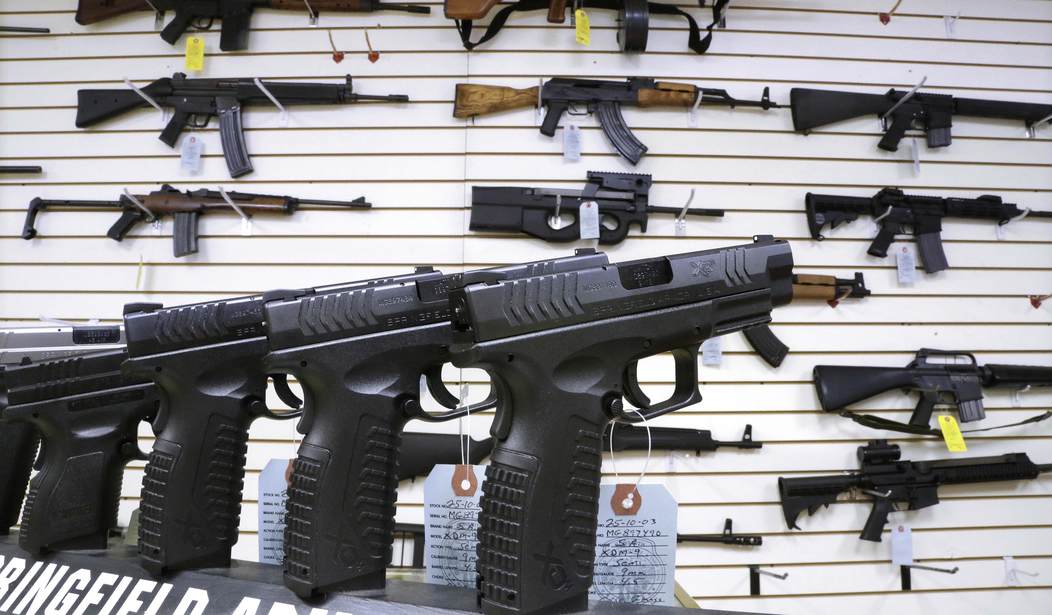Anti-gunner Jonathon Metzl isn’t a stranger to the pages of Bearing Arms, though pretty much never in a particularly flattering light.
While he’s a favorite gun control advocate of many in the media, his arguments are…troubling, to say the least.
Well, they are when they make any sense at all.
Last week, for example, he tried to show how gun control can win. I was unimpressed.
But Metzl has a book out and he has to pimp it as much as possible, so that means writing everywhere that will publish him.
And this time, it meant writing for Time.
It doesn’t start off well.
Public health is the lingua franca through which liberal America understands guns, and the traumas they engender.
Yeah, you know what you’re going to get.
First, most people don’t think of “public health” as any lingua franca for understanding guns or so-called gun violence. That’s purely something that filters through the anti-gun side of things. Granted, he does say “liberal America,” which he has to mean actual liberals versus any other segment of the population.
When President Biden called for action after last October’s mass shooting in Maine, he did so by once again casting gun violence as an “epidemic”—a Hippocratic term taken from the study of the spread of infectious diseases.
The notion that guns cause a public health crisis best addressed through harm reduction strategies like background checks, red flag laws, or safe storage guidelines courses through the language of experts, doctors, activists, and media commentators.
That language reflects gains made by gun safety researchers like me. Our work promotes wellbeing within the armed petri dish that is America—a nation with more guns than people, and more mass shootings than calendar days.
Of course, we only have more mass shootings than days if you expand the term to include shootings where no one died and that don’t fall into what most Americans think of as a mass shooting.
But let’s also remember that any “gains” made by “gun safety researchers” involves very questionable research in and of itself. We’ve looked at that previously and, frankly, nothing has changed. Especially when there’s reason to believe anyone with research that runs contrary to the anti-gun line is self-censoring.
But a limitation to our approach becomes increasingly significant in the leadup to the 2024 election: guns represent different kinds of pathogens than did cigarettes or cars. The ideologies driving expansive gun rights aspire, not just to sell specific products, but to gain power and wield influence in increasingly undemocratic ways. And a heath framework that emphasizes threats to human bodies offers little counter to threats to the American body politic as a result.
Background checks and red flag laws, for instance, offer little counter when expressly pro-gun judges and courts overturn firearm safety laws put in place by voters in places like New York, Maryland, and Oregon.
What Metzl is missing here, though, is that these are our rights. That’s why these judges and courts are overturning gun control laws passed, regardless of whether voters chose them or not. Gun control runs afoul of the Second Amendment and the people deciding their rights don’t matter to them doesn’t permit them to foist gun control on others who disagree.
The basic idea of our republic is that while we can vote for a great many things, our rights are preserved from any assault by the Constitution. It doesn’t matter if the majority decides a thing if that thing infringes on the rights of others.
That’s a good thing.
After all, it’s why we’ll never be able to vote people back into slavery.
Gun politics bleed into realms of governance when pro-gun donors, politicians, and judges shape widening swaths of U.S. domestic and foreign policy about matters ranging from women’s reproductive choice to voting rights to free speech.
Guns also fan America’s deepest social divides when armed militias storm state capitals or intimidate voters at polling stations. Or when gun sellers play on fears and conspiracies about safety to foment white anxiety about Black violence and looting while at the same time marketing semiautomatic weapons to Black and Latino populations using concerns about police brutality.
Except those links about fomenting white anxiety don’t involve anyone from the gun rights side of things mentioning race. Hell, the link on “foment” itself is about a reaction to COVID restrictions, for crying out loud.
These instances and others highlight how guns represent more than health problems: they are problems of race, of history, of plurality. As columnist Jamelle Bouie puts it, gun politics present “a challenge to the very possibility of an open, democratic society.”
This is absolutely ridiculous. The idea that our democratic processes are somehow threatened because we have the right to own a firearm is, beyond all else, as ridiculous of an argument as it comes.
We need to remember one thing about Metzl. He’s an anti-gunner. He’s even open to the idea of banning handguns, though he recognizes it as politically untenable right now. Maybe it’s just me, but it sounds like someone who wants to take them all.
I am a physician, sociologist, gun policy scholar, and a longtime advocate for gun safety. Our interventions save lives.
The “longtime advocate for gun safety” is where there’s a problem. I don’t think he has the time to be good at literally any of the other things he claims to be, but the fact that he acknowledges his own bias means that you have absolutely no reason to believe he ever approached the subject with any degree of neutrality.
Especially since no, those “interventions” don’t save lives. They restrict the wrong people for them to actually save lives and we all know it.
But Metzl isn’t trying to be reasonable. He’s trying to sell books and strip our rights away–rights he clearly doesn’t understand.








Join the conversation as a VIP Member